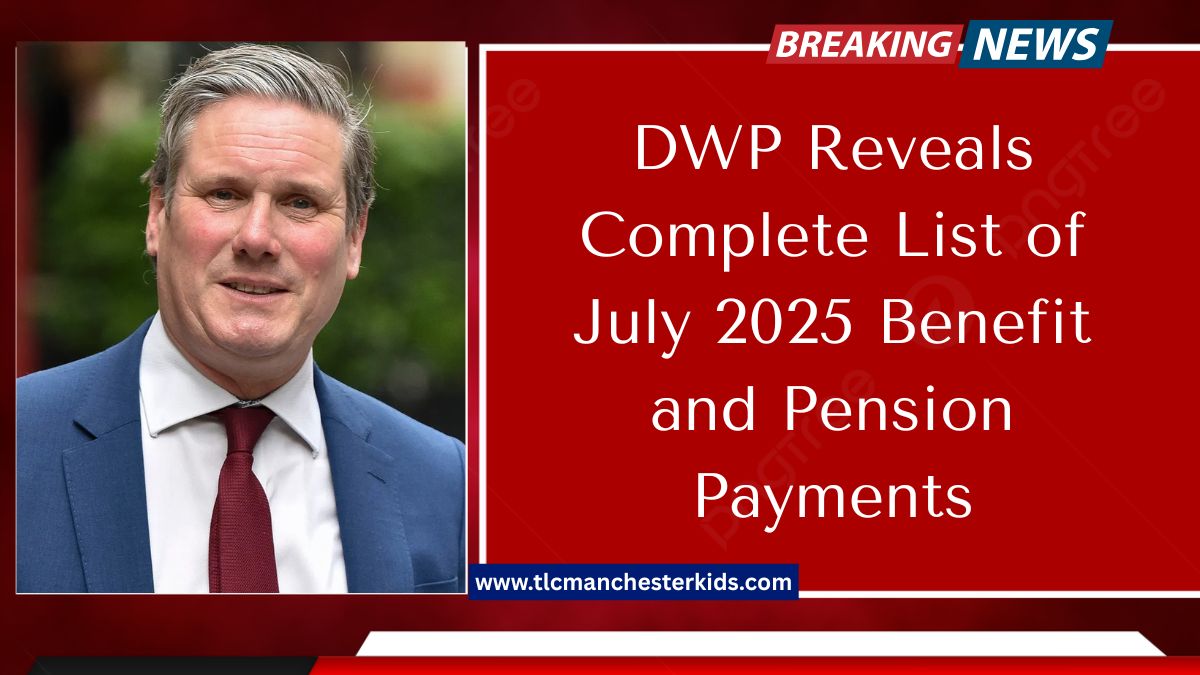If you’re a claimant of benefits from the Department for Work and Pensions (DWP) or HMRC, you might be wondering whether your payments will arrive on time this July.
Let’s take a closer look at how payments are typically processed, and whether any holidays might cause delays.
Overview of DWP Benefit Claims
According to the latest figures from the DWP, around 24 million individuals receive some form of DWP benefits. Of this, 9.9 million are of working age, while 13 million are at State Pension age.
This massive number of claimants raises questions about when and how benefits will be distributed in July, especially considering any potential bank holidays.
Will Bank Holidays Disrupt Payments?
Fortunately, there are no bank holidays in July that should interfere with your benefit payments. Payments are expected to arrive on their regular scheduled dates. Let’s go over the typical payment schedules for various DWP and HMRC benefits.
Regular Payment Dates for Common Benefits
Here’s a breakdown of some of the most common benefit payments and their usual payment schedules:
- Attendance Allowance – Paid every four weeks
- Carer’s Allowance – Paid weekly in advance or every four weeks
- Child Benefit – Paid every four weeks, or weekly if you’re a single parent or receive certain benefits
- Disability Living Allowance – Paid every four weeks
- Employment and Support Allowance (ESA) – Paid every two weeks
- Income Support – Paid every two weeks
- Jobseeker’s Allowance – Paid every two weeks
- Pension Credit – Paid every four weeks
- Personal Independence Payment (PIP) – Paid every four weeks
- State Pension – Paid every four weeks
- Tax Credits – Paid every four weeks or weekly
- Universal Credit – Paid monthly
State Pension Payment Dates in July
The date when your State Pension payment arrives depends on the last two digits of your National Insurance number. The table below shows which days correspond to which National Insurance number ranges:
- 00 to 19: Monday
- 20 to 39: Tuesday
- 40 to 59: Wednesday
- 60 to 79: Thursday
- 80 to 99: Friday
Recent Changes to Disability Benefits
The Labour Party recently made significant adjustments to proposed changes to disability payments. After considerable pressure, Labour backtracked on planned reforms to Personal Independence Payment (PIP) and the health element of Universal Credit. Originally, the proposal aimed to tighten eligibility criteria for PIP and reduce the health-related component of Universal Credit.
Now, PIP claimants need at least eight to 11 points to qualify for the standard daily living or mobility component. Those scoring 12 points or more are awarded a higher rate. However, upcoming changes will reduce the required points to just four for at least one activity to qualify for the daily living part of PIP.
These changes, which will affect new claimants only, are set to be implemented in November 2026. Existing recipients of the health element of Universal Credit will have their income protected in real terms.
If you’re receiving DWP or HMRC benefits in July, there’s good news: payments will arrive on time, as there are no bank holidays to cause delays.
It’s important to be aware of your payment schedule, particularly for State Pension claimants, as the payment date depends on your National Insurance number.
Additionally, recent changes to PIP and Universal Credit will not affect current claimants, though future changes will apply to new applicants starting in 2026.
FAQs
Will there be delays in my DWP or HMRC benefits in July?
No, there are no bank holidays in July to cause delays. Payments will be made on their usual dates.
How often is State Pension paid?
State Pension is typically paid every four weeks. The payment day depends on the last two digits of your National Insurance number.
What changes were made to PIP eligibility?
The eligibility for PIP will be relaxed for new claimants starting in November 2026. They’ll need a minimum of four points in one activity to qualify for daily living.




